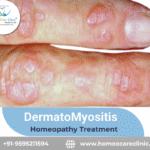Deep Vein Thrombosis is a disease where, because of various reasons, a blood clot forms inside deep veins, mainly in the legs. Such a blood clot traveling to the lung might lead to life-threatening complications due to pulmonary embolism. Early diagnosis, medical treatment, lifestyle modifications, and proper nutrition through the proper deep vein thrombosis prevention diet may help control and prevent the disease. The food incorporation will help prevent DVT in a patient as well as advance the circulation, thereby reducing the chances of clotting in blood.
A heart-healthy diet improves circulation and decreases inflammation, greatly reducing the chances of blood clots. People who are at a reduced risk for DVT can steer clear of diet items that are high in oxides, omega-6 fatty acids, and inadequate hydration.
|
Time |
Meal |
Amount |
|
6:30 AM |
Warm water with lemon or turmeric (anti-inflammatory) |
1 glass |
| 7:30 AM (Breakfast) |
Option 1: Oats porridge with flax seeds and berries Option 2: Whole wheat toast with avocado Option 3: Fresh fruit salad with oranges, kiwi, and walnuts |
1 bowl oats 2 slices toast 1 bowl fruit salad |
|
10:30 AM (Snack) |
Mixed nuts (almonds, walnuts) and green tea (antioxidant-rich) |
1 small handful or 1 cup tea |
|
1:00 PM (Lunch) |
Option 1: Brown rice with lentils (dal) and a side of steamed vegetables (like spinach and carrots) Option 2: Quinoa salad with grilled chicken or tofu and avocado |
1 bowl rice 1 bowl salad |
|
4:00 PM (Snack) |
Carrot or cucumber sticks with hummus |
1 small bowl |
|
6:30 PM (Evening Snack) |
Coconut water or herbal tea |
1 glass |
|
8:00 PM (Dinner) |
Option 1: Grilled salmon or chicken with steamed broccoli and quinoa Option 2: Lentil soup with multigrain bread and sautéed spinach |
1 small portion salmon/chicken 1 bowl soup |
| 9:30 PM (Before bed) | Warm milk with turmeric (anti-inflammatory and boosts circulation) |
1 glass |
Foods to be consumed for DVT
There are some foods that prevent blood clotting and also promote circulation. Therefore, they are essential parts of the diet that would help in preventing deep vein thrombosis. They are:
- Omega-3-Rich Foods: These include fatty fish like salmon, mackerel, and sardines, being very rich in omega-3 fatty acids which thwart the formation of clots and improve the health of the heart.
- Green leafy vegetables:, spinach, kale, and the rest of the dark leafy greens have antioxidants that promote blood flow while reducing inflammation.
- Citrus fruits: Orange, lemon, and many other citrus fruits are very rich in Vitamin C that can cause sclerotic changes in blood vessels while preventing clotting.
- Nuts and Seeds: Almonds, walnuts, and flax seed are some healthy sources of fats that contain antioxidants that help improve blood flow.
- Garlic and ginger: Both garlic and ginger naturally prevent clots from hardening and therefore lower the possibilities of forming clots.
- Brown rice, quinoa, and whole wheat bread: Incorporating these in your diet will improve your heart health, reducing the chances of clotting.
- Water and hydrating foods: You need to stay well hydrated to avoid blood clotting. Drink lots of water and take fruits such as cucumbers, watermelon, and oranges.
Food to Be Avoided in Case of DVT
Some foods raise the risk of clot formation and therefore should be avoided or limited in a foods to avoid with DVT diet. These are as follows:
- Trans fats and saturated fats: Fried foods, pastries, and processed snacks can raise cholesterol levels and slow blood circulation, thus risking clots.
- Sugary foods: Sweets, soft drinks, and sugary snacks contribute to inflammation and poor blood circulation.
- Salty foods: Intake of salty food exceeds water retention, and this increases blood pressure and clot formation.
- Red meat: Processed and fatty red meat contains saturated fats, which are harmful to heart health.
- Alcohol: Beer and other alcoholic beverages will lead to dehydration, causing an increase in clotting.
- Vitamin K-rich foods in excess: While leafy greens are healthy in moderation, too much of this Vitamin K (found in kale, spinach, and broccoli) can interfere with blood-thinning medications. The proper intake must always be discussed with a doctor.
Diet to be followed for DVT
Healthy, balanced diet includes plenty of nutrient-rich foods to minimize the risk of DVT. A diet to prevent DVT focuses on
- Healthy fats: Omega-3 fatty acids, as in fish, nuts, and seeds, may reduce the inflammatory effect, enabling proper blood flow.
- Food high in antioxidants: Berries, orange fruits, and leafy greens contain antioxidants that stop the formation of clots and keep blood vessels healthy.
- Lean proteins: Chicken, fish, tofu, and legumes have nutrients that are necessary to good health but do not have anything at all to do with poor circulation.
- Whole grains: Whole grains are part of the diet, such as brown rice, oats, quinoa, and whole-wheat bread, to add heartiness and ensure that blood flows well throughout the body parts.
- Hydration: fluid ingestion and hydrating food consumption should always be an element of keeping the flow of blood smooth and preventing clotting.ng.
Dos and Don’ts for Deep Vein Thrombosis
Do’s
- Exercise regularly: Walking, cycling, and swimming enhance your circulation and prevent the blood from flowing back to the lower extremities.
- Maintain healthy weight: Any extra weight than the healthy weight increases risks of DVTs. Normal weight maintenance lowers the risk of clotting.
- Hydrate: Fluids increase blood flow and also the risk of clotting.
- Wear compression stockings: Compression stockings can also be used to promote circulation when restrained for long periods.
- Take breaks during long journeys: During long journeys, be it by air or car, take regular walks and stretch at least once every hour or two.
Don’ts
- Avoid prolonged sitting: Do not sit for a long time as it has a greater risk of clotting due to immobility, especially of the legs.
- Don’t ignore symptoms: Pain, swelling or redness in the legs must not be ignored. Medical attention should be received promptly.
- Avoid smoking: Smoking must be avoided. Smoking constricts the diameter of blood vessels; therefore, it increases the chances of DVT.
- Limit caffeine and alcohol intake: These tend to dehydrate and thereby make blood thick and liable to clot. .
Deep Vein Thrombosis (DVT) Homeopathic Medicine, Causes & Symptoms Click here to know more
Deep vein thrombosis is managed and prevented through lifestyle changes, a DVT-prevention diet, and homeopathic remedies. The inclusion of foods that would enhance circulation, reduce inflammation, and foster heart conditions will prevent one from blood clots. Homeopathic treatments combined with a healthy diet and exercise routine work well in avoiding DVT while still keeping a good level of health.
In conclusion,
Homeo Care Clinic offers a holistic approach to treating the disease. The remedies mentioned above can treat the underlying causes of the condition and offer relief from the discomfort. However, it is important to consult a qualified homeopathic practitioner for the correct dosage and duration of treatment. Homeo Care Clinic provides comprehensive care for various ailments, and offers customized treatment plans based on individual requirements.
To schedule an appointment or learn more about our treatment, please visit our website or give us a call +91 9595211594 Our friendly staff will be happy to assist you. If you’re searching for the best homeopathy doctor, we are here to help.
Follow us on Facebook, Twitter, and Instagram for valuable insights into the world of homeopathy and holistic health.
Facebook – https://www.facebook.com/homeocareclinicpune
Instagram – https://www.instagram.com/homeocareclinic_in
Website – https://www.homeocareclinic.in
Chat with a best homeopathic doctor privately
If you have any queries regarding your disease or any symptoms, Click to send a WhatsApp message. Our best homeopathy dr will be happy to answers you.
Book an Appointment
If you want to visit our clinic, Click to book an appointment.
Online treatment
If you are a busy professional, or you are living in a remote town or city, with no best homeopathic doctor near you, Clickhere to start an online homeopathic treatment with the world’s exclusive, most experienced and best homeopathic clinic, managed by Dr. Vaseem Choudhary world-renowned homeopathic doctor expert.





